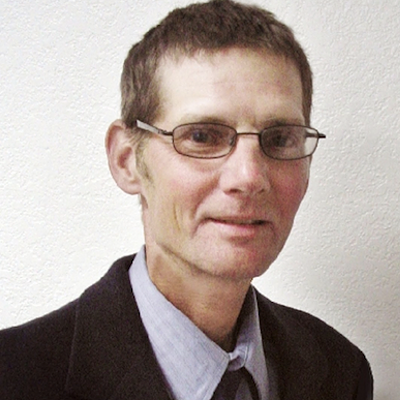Free-speech advocates have assailed state Senate Bill 1542, formerly SB 1612, as granting the wildest dreams of such right-wing ideologues as David Horowitz in their quest to tamp down on a perceived leftist bias in schools. Horowitz, a writer and Fox News analyst, recently accused a handful of University of Arizona professors of trying to indoctrinate students with liberal propaganda ("McCarthyism 101," Currents, Jan. 25).
He and others have pushed for states to pass "academic bill of rights" laws that would prohibit this so-called indoctrination. Multiple templates for such laws, including ones called "intellectual-diversity bills," have made their way into as many as 26 state legislatures, according to opponents. None of these have been signed into law, but universities in at least three states--Colorado, Ohio and Tennessee--have entered into voluntary agreements with legislatures to head them off.
"What it means is that the university has essentially agreed to start restricting what students are able to learn in the classroom," said Megan Fitzgerald, field director with the Free Exchange on Campus Coalition. "Now, from what we've heard, in Tennessee and in Ohio, it's not being enforced really at all. In Colorado, we've heard random anecdotes that make it seem like it's being enforced."
The Arizona bill, if enacted, could take self-censorship in schools to a new level.
"This is yet another bill that is seeking to restrict the free exchange of ideas on campus, and, frankly, this is probably the most extreme form we've seen yet," Fitzgerald said. Unlike its cousins in other states, it lays out specific penalties when a teacher or professor advocates "one side of a social, political or cultural issue that is a matter of partisan controversy."
If they're found to violate that vaguely worded clause--after all, what isn't a matter of "partisan controversy" these days?--it could cost them $500 for each violation, make them the target of lawsuits and result in their suspension or termination. Public-school teachers and professors are already prohibited from using state resources for political purposes.
Curiously, Horowitz himself has labeled the bill too extreme--at least in part. In a blog post on the Frontpagemag.com Web site, he wrote that he opposed all portions of the bill relating to higher education "unconditionally and without reservation."
"
College students are adults and all these injunctions would effectively prevent university instructors from carrying out their professional tasks," Horowitz wrote. "Moreover, as I have said many times and on many occasions: I oppose all legislation that would impose restrictions on what university instructors say in the classroom. I have never advocated legislation that would monitor or restrict what university instructors say in their classrooms and do not support any legislation pending anywhere in the United States that would do so."
But he does "wholeheartedly endorse" the bill's efforts to rein in lib loose cannons in primary and secondary schools.
"There is massive indoctrination going on in our K-12 schools which is unconscionable," he stated. "K-12 students should not be subjected to partisan agitation by their teachers. Public school teachers who are employees of the state should not behave in a sectarian political manner in their classrooms."
The bill's primary sponsor, Senate Majority Leader Thayer Verschoor, did not return a phone call seeking comment. However, the Weekly spoke with Democratic state Sen. Charlene Pesquiera, who was on the Education K-12 Committee that voted down the measure 5-3. She was also on the losing side when the bill was brought back from the afterlife using a strike-everything amendment in the Government Committee.
Lawmakers use such amendments to replace the contents of one bill with another in its entirety, allowing them to either revive dead bills or propose new concepts as they arise after deadlines--sometimes without committee hearings in one chamber of the Legislature. Critics contend these maneuvers short-circuit the democratic process by shielding potential laws from the public.
Pesquiera, who represents Legislative District 26 in northwest Tucson, said the bill boldly goes where lawmakers shouldn't go at all.
"I don't think that was an appropriate bill and just really undermined teachers and college professors," she said. She called the bill "open and vague" and said Verschoor, who hails from Gilbert, was generalizing about Arizona's teachers after his child was allegedly exposed to an instructor's biased views.
"After hearing it in (the) Government (Committee), I said to him, 'I apologize for your misfortune, obviously, with your daughter or son, and the experience that they might have had in school, but that does not mean that represents all of Arizona or all teachers. Therefore, us having a hand in creating a law because of my misfortune or your misfortune is not where we need to be as politicians.'" Pesquiera said.
A number of other issues with the bill arose in committee, Pesquiera said. Some doubted whether it would pass constitutional muster with regard to free-speech rights. Pesquiera said she objected to "a whole different type of punishment for teachers"--aka fines--when teachers are paid so poorly anyway. And the proposed requirement that they go through three hours of training each year on what not to say in classrooms rubbed her the wrong way, as they already have a full load of workshops and accreditations.
"To put one more thing on the plate--for me, I just thought that was an unrealistic request on his behalf," she said.
In the meantime, Javan Mesnard, majority education policy adviser, said SB 1542 is "kind of in limbo--for lack of a better way of saying it." It could either be moved forward or be referred back to committee. If the latter happens, it would effectively die, he said, because Senate committees are no longer hearing bills.
Still, in the Legislature, even dead bills have a way of resurfacing when people least expect it.









